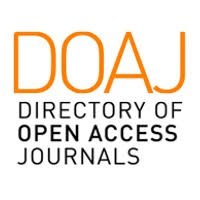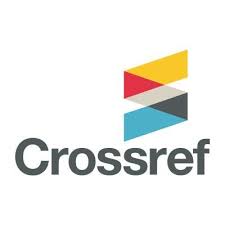IMPLEMENTASI PENDIDIKAN KARAKTER DI MASA PANDEMI COVID-19 MELALUI KULIAH KEMUHAMMADIYAHAN BERBASIS PEMBERDAYAAN KELUARGA DHUAFA
DOI:
https://doi.org/10.24269/muaddib.v1i1.4365Abstract
The learning process during the COVID-19 pandemic, which is mostly done online, is a challenge for educational institutions in strengthening character values in students, which is an important aspect of educational goals.
This research aimed to analyze the implementation of the kemuhammadiyahan subject on empowering poor families during the COVID-19 pandemic in strengthening character values for students. This research was conducted through a qualitative method combining two data collection techniques; review on documents (books and journal articles) and observation of 238 students from 16 departments and 6 faculties who had attended kemuhammadiyahan subject at the University of Muhammadiyah Prof. Dr. Hamka.
This research reveals that kemuhammadiyahan subjects using the online learning method combined with field assignments (luring) in the form of empowering poor families have an effect on strengthening student character values. After taking the kemuhammadiyahan subject, students increasingly have a sense and attitude of caring for others (welas asih), sympathy and empathy, social responsibility, gratitude, optimism, generosity, honesty, discipline, patience, citizenship, commitment, compassion, and sincerity. Students also feel that they are increasingly possessing skills such as creative, innovative, communicative and collaborative.
This study also shows that kemuhammadiyahan subjects have contributed to helping the poor who were economically affected during the COVID-19 pandemic. Therefore, this kemuhammadiyahan subject model is relevant to the Freedom of Learning-Independence Campus (MBKM)Â policy which was initiated by the Ministry of Education which requires learning which can be implemented based on humanitarian project programs.
References
Amirullah. 2018. Pendidikan Humanis: Mengarusutamakan Nilai-nilai Kemanusiaan dalam Praktek Pendidikan Islam di Indonesia. Jakarta: Pustakapedia.
Arifin, S., Abidin, N., & Anshori, F. A. (2021). Kebijakan Merdeka Belajar dan Implikasinya terhadap Pengembangan Desain Evaluasi Pembelajaran Pendidikan Agama Islam. Dirasat: Jurnal Manajemen Dan Pendidikan Islam, 7(1), 65–78. https://doi.org/10.26594/dirasat.v7i1.2394
Iman, N., Ds, A., Arifin, S., & Cholifah, U. (2021, Februari 3). Generosity Education for Children (Case Study At Mi Muhammadiyah Dolopo Madiun). Proceedings of the 2nd International Conference on Islamic Studies, ICIS 2020, 27-28 October 2020, Ponorogo, Indonesia. https://eudl.eu/doi/10.4108/eai.27-10-2020.2304184
Arifin, S., & Muslim, M. (2020). Tantangan Implementasi Kebijakan “Merdeka Belajar, Kampus Merdeka†pada Perguruan Tinggi Islam Swasta di Indonesia. Jurnal Pendidikan Islam: Al-Ilmi, 3(1), 1–11.
Berkowitz, M. W., & Fekula, M. J. (1999). Educating for Character . About Campus: Enriching the Student Learning Experience, 4(5), 17–22. https://doi.org/10.1177/108648229900400504
Burac, R. B. (2020). A review of the implementation of experiential learning courses. Test Engineering and Management, 83(1), 13520–13527.
Fajri, Muhammad Dwi. (2020). Teologi Filantropi Perspektif Buya Hamka. AL-URBAN: Jurnal Ekonomi Syariah dan Filantropi Islam Volume 4 (1), https://journal.uhamka.ac.id/index.php/al-urban/
Kolb, A. Y., & Kolb, D. A. (2009). Experiential learning theory: A dynamic, holistic approach to management learning, education and development. The SAGE Handbook of Management Learning, Education and Development, April, 42–68. https://doi.org/10.4135/9780857021038.n3
Kemdikbud RI. 2016. Gerakan Penguatan Pendidikan Karakter (PPK). Jakarta: Infografis_PPK_v1.pdf - Simpandata (kemdikbud.go.id)
Kemdikbud RI. 2020. Buku Panduan Merdeka Belajar. Jakarta: Kemendikbud
Mundzir, I. (2021). Implementation of Prosocial Education Through Experiential Learning in the Subject of Kemuhammadiyahan. Ta’dib, 24(1), 123. https://doi.org/10.31958/jt.v24i1.2655
Mulkhan, Abdul Munir. 1990. Warisan intelektual K.H. Ahmad Dalan dan amal Muhammadiyah. Jakarta: percetakan persatuan.
Mulkhan, Abdul Munir. 2010. Jejak Pembaruan Sosial dan Kemanusiaan Kiai Ahmad Dahlan. Jakarta: PT. Kompas Media Nusantara.
Passarelli, A., & Kolb, D. (2012). Using Experiential Learning Theory to Promote Student Learning and Development in Programs of Education Abroad. Student Learning Abroad, 1–37.
Shields, D. L. (2011). Character: As the aim of education. Phi Delta Kappan, 92(8), 48–53. https://doi.org/10.1177/003172171109200810
Silay, N. (2013). Character Education at Universities. Journal of Education and Social Research, 3(1), 43–50. https://doi.org/10.5901/jesr.2013.v3n1p43
Silver, T. (2021). Using Principles of Experiential Learning to Promote Effective Learning among English Language Learners. 8(1), 104–110. https://doi.org/10.30845/jesp.v8n1p12
Singh, B. (2019). Character education in the 21st century. Journal of Social Studies (JSS), 15(1), 1–12. https://doi.org/10.21831/jss.v15i1.25226
Tim Dosen AIK. (2018). Kemuhammadiyahan. Yogyakarta: Suara Muhammadiyah.
Hadjid, KRH. 2018. Pelajaran Kiai Haji Ahmad Dahlan: 7 Falsafah & 17 Kelompok Ayat. Yogyakarta: Suara Muhammadiyah.
Downloads
Published
Issue
Section
License

MUADDIB:Studi Kependidikan dan Keislaman is licensed under a Creative Commons Attribution-ShareAlike 4.0 International License.














